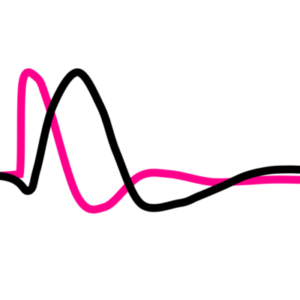REGISTRATION IS CLOSED FOR THIS EVENT

Although the human brain constitutes only 2% of body mass, it accounts for 20% of an individual’s oxygen consumption (Raichle and Gusnard, 2002). As such, it is dependent on the delivery of glucose and oxygen in blood to maintain brain metabolism and function, and it is typically understood that cerebral blood flow is closely matched to metabolic demand through the process of neurovascular coupling (Iadecola, 2017). Indeed, the haemodynamic response function (HRF) provides the basis for our interpretation of unmeasured neural activity in functional MRI (Logothesis, 2002). However, quite apart from being a stable physiological principle, brain haemodynamics are susceptible to alteration and exhibit both inter-individual and intra-individual variability.
Relying on the assumed standard hemodynamic responses to interpret unmeasured neural activity affects our understanding of the relationship between the human brain and behaviour (Rangaprakash et al., 2017; Rangaprakash et al., 2018; Duarte et al., 2015; Mullins, 2018). This symposium will further our understanding of the mechanisms underpinning human behaviour with wide-reaching implications for our analytical approaches and interpretation of fMRI research.
Programme
Times are BST (UTC +1)
12:30 – 13:00 Log on and get acquainted with the virtual conference venue
13:00 – 13:15 Welcome by Dr Gabriella Rossetti (Chair)
13:15 – 14:00 Invited speaker: Dr Mariel Kozberg (Vascular Neurology Fellow, Massachusetts General Hospital)
In Vivo imaging of vascular function in small vessel disease
14:00 – 14:45 Special session: APOE4 and neurovascular function
Presentations from Kira Shaw and Dr Catherine Hall (University of Sussex)
14:45 – 15:15 Networking event
15:15 – 16:00 Invited speaker: Prof Paul Mullins (Director of Bangor Imaging Unit, Bangor University)
Using hypoxia to probe the coupling between metabolism, neural activity, and cerebral blood flow
16:00 – 16:15 Coffee and networking
16:15 – 17:00 Invited speaker: Prof Gopikrishna Deshpande (Professor, Auburn University)
Haemodynamic response alterations and implications for resting state analyses
17:00 – 19:00 Drinks and social


